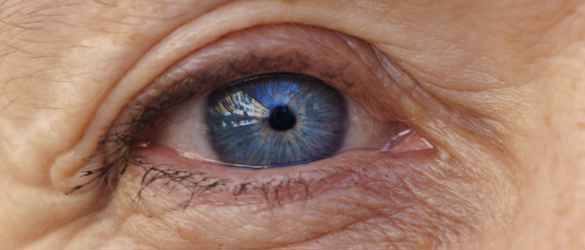New drug for dry AMD - Syfovre: your questions answered
Posted: Tuesday 04 April 2023
In February we shared the exciting news that the first-ever drug to treat dry age-related macular degeneration (AMD) has been approved in the US.
Pegcetacoplan, known as Syfovre, was cleared for use in patients by the Food and Drug Administration (FDA).
The news has inevitably sparked questions from patients in the UK with dry AMD, with many wanting to know what this means for them and when it will be available on the NHS.
With the support of Apellis Pharmaceuticals, which has brought the drug to market, we have answered some of your most frequently asked questions:
What are the results of the studies that led to the approval of Syfovre?
The OAKS and DERBY clinical trials concluded that treatment with pegcetacoplan reduced the rate of progression of late-stage dry AMD, often referred to as geographic atrophy (GA).. However, the results showed that pegcetacoplan did not lead to a change in how well the participants could see during their vision tests.
How long until it is available in the UK? When will this be available on the NHS?
Before any new medicine can be given to patients in the UK, it needs to be assessed by the Medicines and Healthcare products Regulatory Agency (MHRA). The MHRA will review the data and evidence on risks and benefits of the treatment. This can usually take around a year to complete. Availability on the NHS will depend on it being approved by the MHRA and a positive outcome of the review of costs, which is conducted by NICE (National Institute for Health and Care Excellence) for England and Wales, and similar bodies in Scotland and Northern Ireland.
How much does the drug cost?
Following the regulatory approval of the medicine, the cost of pegcetacoplan will be evaluated – a process that will inform the cost of the medicine on a country by country basis. In England, Wales and Northern Ireland this process is the responsibility of NICE and in Scotland, the Scottish Medicines Commission (SMC). This is a different process from that carried out by the regulator and looks carefully at the value that this medicine may bring to patients and decide (according to a set criteria) if the NHS should pay for it to be available. Patient organisations will be able to submit evidence and opinion to this process.
Will this be available for other types of macular disease?
Only patients with late-stage dry AMD were enrolled on the trials for pegcetacoplan. There is currently no evidence to support its use to treat any other macular conditions.
I have dry in one eye and wet in the other, can I still receive this treatment?
Pegcetacoplan is only approved in the US. The scope of its use in the UK still needs to be determined by the MHRA during the regulatory review proceedings.
In the clinical trials, participants were eligible for treatment with pegcetacoplan if they had geographic atrophy in one eye (the study eye) and were also included in the studies if they had wet AMD in the other eye.
I have wet AMD and GA in the same eye, can I receive this treatment?
In the clinical trials participants were not eligible to begin treatment in their study eye if they had wet AMD in the same eye.
However, if participants developed wet AMD during the study, they were eligible for treatment with anti-VEGF medicine.
The MHRA will evaluate the clinical studies to agree on the approved use of pegcetacoplan in the UK.
How long would I need to have injections for?
There are presently no published clinical guidelines on the recommended duration of pegcetacoplan use.
How often would injections be given?
The MHRA will evaluate the clinical studies to agree on the approved frequency of injections of pegcetacoplan in the UK.
What were the side effects?
Results from 12, 18 and 24-month time points in both clinical studies suggested that pegcetacoplan showed a similar safety profile to other intravitreally injected medicines for AMD. However, patients receiving pegcetacoplan developed wet AMD more frequently than patients receiving sham injections.
The Macular Society will be providing further updates when they become available.
Stay up to date with developments on this new drug and further progress in research by signing up to the Macular Society’s enewsletter or follow the Macular Society on Facebook and Twitter.
Dry age-related macular degeneration (AMD)
Dry age-related macular degeneration (AMD) is a gradual deterioration of the macula as the retinal cells die off and are not renewed.
Treatments
Read more about treatments available for patients with macular conditions, including wet AMD. Get expert insights from the Macular Society on the latest research into treatments.
Our research projects
Since 1987 the Macular Society has invested around £10 million in over 100 research projects.
Support for you
We provide free information and support to those with macular disease, along with their family and friends, to help people keep their independence.
Get the latest news and advice from the Macular Society
To hear about life-changing research, treatments and tips for living with sight loss, subscribe to our monthly enewsletter today. Together we can Beat Macular Disease.
Sign up to our free email newsletter





